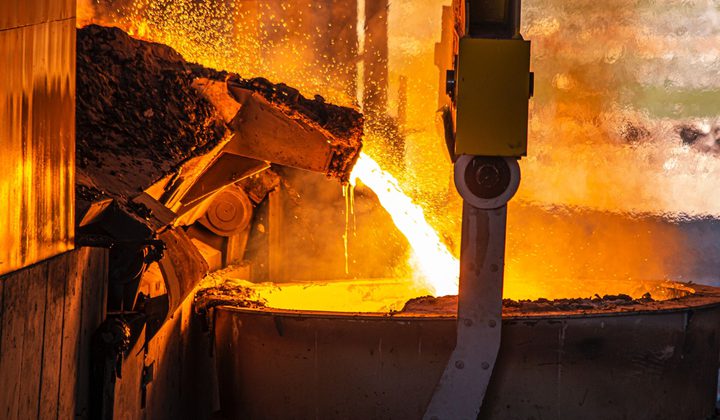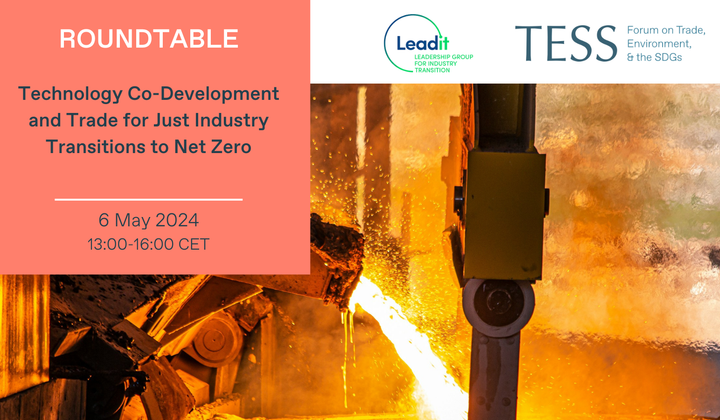Alongside COP30, TESS and the Leadership Group for Industry Transition (LeadIT) hosted an event on the role of trade and international cooperation for a rapid and equitable industrial decarbonization.
This session, organized by TESS and LeadIT, examined how trade policy and international cooperation can deliver technology where it is needed for industrial decarbonization. Topics for discussion include: leveraging trade in environmental goods and services, enabling intellectual property and licensing models (such as patent pools, shared intellectual property rights (IPRs) and co-development, off-patent use, and concessional licensing), and strengthening investment partnerships and finance mechanisms (including concessional financing, public–private partnerships, and cooperation through Article 6 of the Paris Agreement).
Panelists discussed strategies to overcome cost barriers, enable technology adaptation and maintenance, and expand participation of developing countries in low-carbon industrial value chains, creating the conditions for an equitable and competitive transition.
Expected Outcomes:
- Better understanding of how trade and international cooperation mechanisms can support industrial decarbonization.
- Insights into technology co-development, intellectual property, and financing models that accelerate clean technology diffusion.
- Identification of policy levers to enhance developing countries’ participation in low-carbon industrial value chains.
- Actionable recommendations for public-private and intergovernmental collaboration to deliver equitable access to climate technologies.
Agenda
Welcome Remarks by the Organizers
Panel Discussion
Thought starters
- Per Andersson, Head of Secretariat, LeadIT
- Peter Oksen, Green Technology and Research Manager, World Intellectual Property Organization (WIPO)
- Luisa Orre, Chief Business Development Officer, Stegra
- Shimukunku Manchishi, Senior Policy Officer, African Future Policies Hub
- Christophe Bellmann, Head of Policy Analysis & Strategy, TESS
Moderator
- Arati Davis, Business Co-development Lead, LeadIT
Open Discussion
Concluding Remarks
Background
Heavy industry (e.g. steel, cement) accounts for about a quarter of global carbon emissions and requires diffusion and massive scaling of clean technologies—including hydrogen-based steelmaking and carbon capture, utilization, and storage (CCUS)—to reach net zero. Yet in many emerging and developing economies, deployment is held back by high costs of technology and capital, policy and financing challenges, and the need to adapt technologies to local production processes while building capacity and skills for endogenous technology development.





